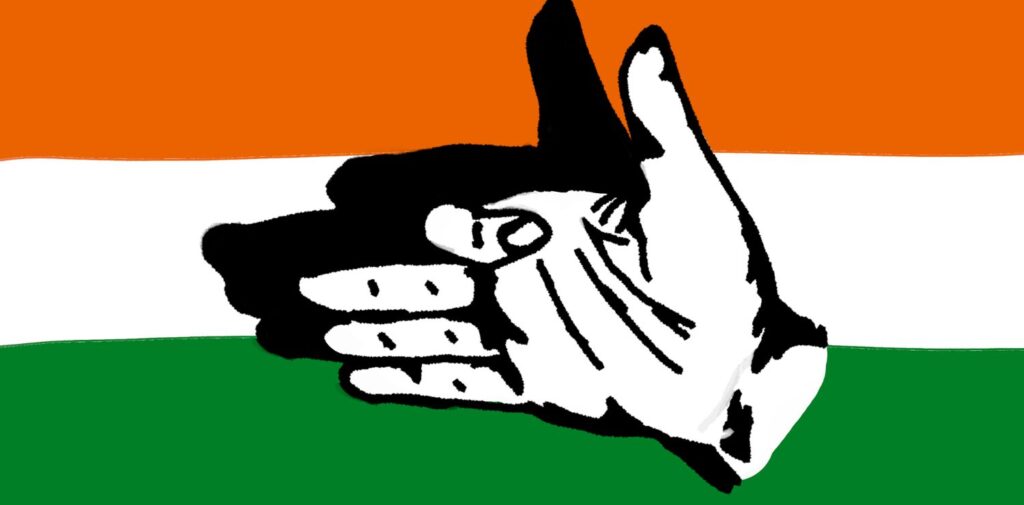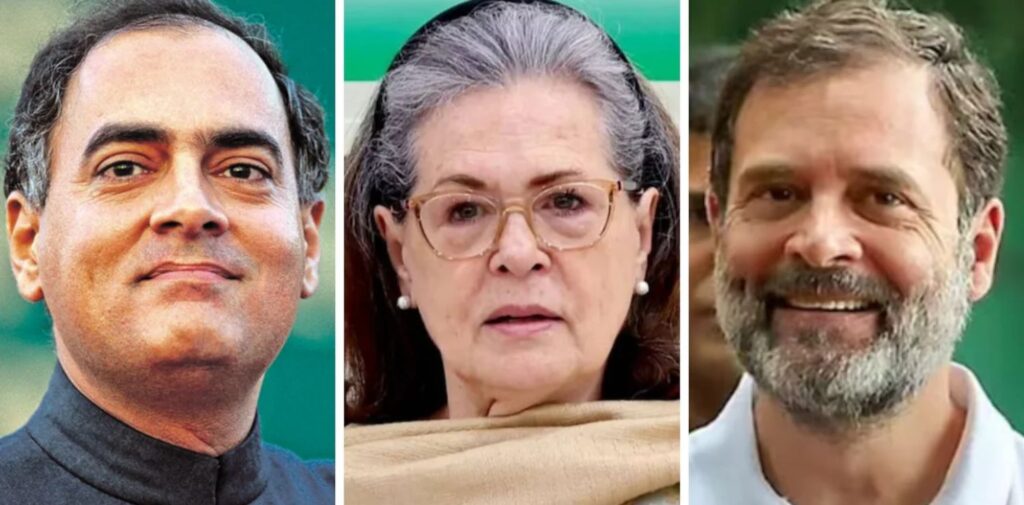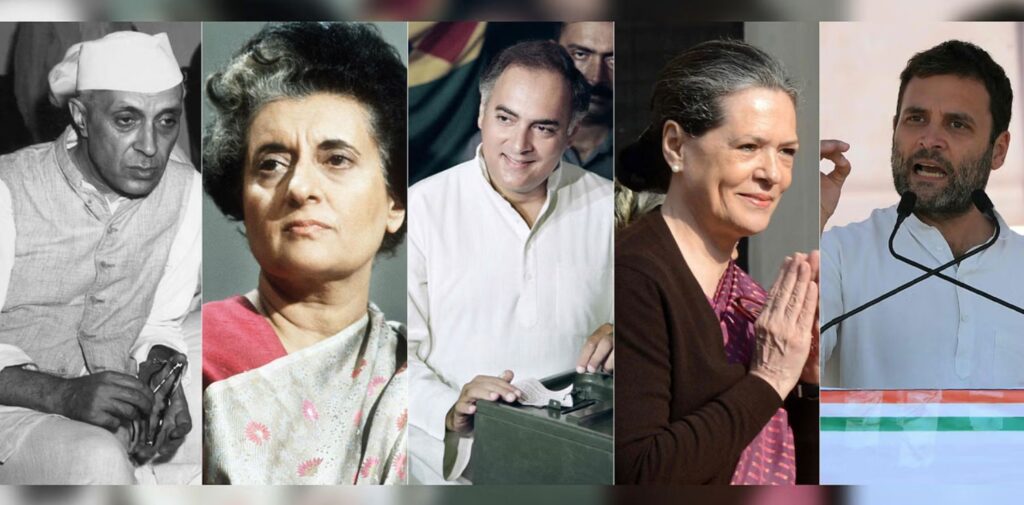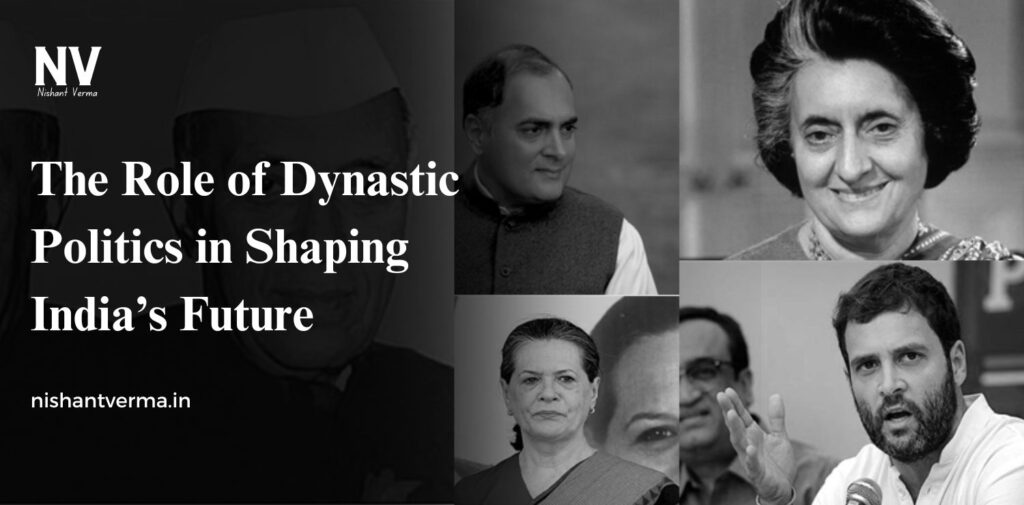Dynastic politics became one of the defining features of the INC in the post-independence era. The Nehru-Gandhi family’s political monopoly led to the concentration of power in the hands of a few individuals, which had far-reaching consequences for the country’s political landscape. The practice of dynastic succession—where political leadership is passed down within the family—became institutionalized within the Congress Party.
After Indira Gandhi’s assassination in 1984, her son Rajiv Gandhi became the Prime Minister, continuing the family legacy. Rajiv Gandhi’s tenure, like his mother’s, was marked by attempts to modernize the country but was also marred by corruption scandals and political controversies. However, his tenure failed to address the root causes of discontent within the country, such as economic inequality, regional disparities, and the demands of various marginalized groups.
Rajiv Gandhi’s sudden rise to power underscored how the Congress Party had become a vehicle for advancing the interests of the Nehru-Gandhi family rather than a political organization that represented the diverse voices of Indian society. This continued concentration of power within the family created a disconnect between the leadership of the Congress and the common people, especially those who were not part of the elite political class.
Decline of the Indian National Congress
Over the years, the INC’s dominance began to decline as the country’s political environment changed. The party, which had once been the face of India’s independence struggle, began to lose its appeal to younger generations. The INC’s emphasis on dynastic leadership, coupled with its inability to address the needs of the growing population, alienated many people.
By the 1990s, the Congress Party faced increasing challenges, both internally and externally. The rise of regional parties, the emergence of the Bharatiya Janata Party (BJP), and the increasing dissatisfaction with the leadership of the Nehru-Gandhi family contributed to the erosion of the Congress Party’s influence. In the 1996 general elections, the INC suffered a major defeat, signaling the beginning of its decline as the dominant political force in India.
The continued dominance of the Nehru-Gandhi family led to a lack of internal leadership development within the INC. As the family became more focused on maintaining its hold on power, the Congress Party failed to groom new leaders who could take the party forward. This lack of leadership diversity stunted the party’s growth and made it increasingly difficult to connect with India’s evolving political and social landscape.

The Nehru-Gandhi Family’s Stranglehold on the Party
Despite the Congress Party’s decline, the Nehru-Gandhi families control over the party continued. In the late 1990s, Sonia Gandhi, the Italian-born wife of Rajiv Gandhi, was brought into politics and became the leader of the Congress Party. Sonia Gandhi’s leadership was heavily scrutinized, especially since she was not born in India, but her ascendancy marked the continued centralization of power within the Nehru-Gandhi family. She was followed by her son, Rahul Gandhi, who attempted to revive the party but failed to capture the imagination of the masses.
Rahul Gandhi’s leadership, in particular, has been criticized for his lack of experience and failure to offer a compelling vision for India’s future. Despite the political dynasty’s ongoing influence, the Congress Party has continued to lose ground to other parties, particularly the BJP. The Nehru-Gandhi family’s stranglehold on the party has prevented the Congress from evolving into a truly democratic organization with diverse leadership capable of representing India’s diverse population.

The Legacy of the Nehru-Gandhi Family: A Hindrance to Congress’ Revival
The Nehru-Gandhi family’s dominance in the Congress Party has led to its decline in the post-independence era. By concentrating power in the hands of a single family, the Congress Party undermined the democratic principles upon which it was founded. The leadership’s focus on maintaining political control for the family instead of nurturing internal party democracy and developing alternative leadership has hindered the Congress Party’s ability to adapt to the changing political realities of India.
The continued reliance on the Nehru-Gandhi family, even as the party lost its grip on power, has made it difficult for the Congress to attract new talent and revitalize itself. The party has been unable to transcend its dynastic roots and connect with voters who seek a more inclusive and democratic form of leadership.

Conclusion: Role of Dynastic Politics
The Indian National Congress played a vital role in India’s struggle for independence, but its journey in the post-independence era has been marked by internal struggles and the dominance of the Nehru-Gandhi family. The centralization of power within one family and the practice of dynastic politics have stifled the growth and evolution of the party, preventing it from adapting to the changing political dynamics of India.
For the Congress Party to regain its relevance in the future, it must shed its dynastic structure and embrace true democratic principles. Only by empowering new leaders, promoting internal democracy, and addressing the issues that matter to the people can the Congress Party hope to rebuild itself as a credible alternative in India’s political landscape. The Nehru-Gandhi families hold on the Congress must be reexamined if the party is to truly reflect the diverse and vibrant democracy that India aspires to be.




